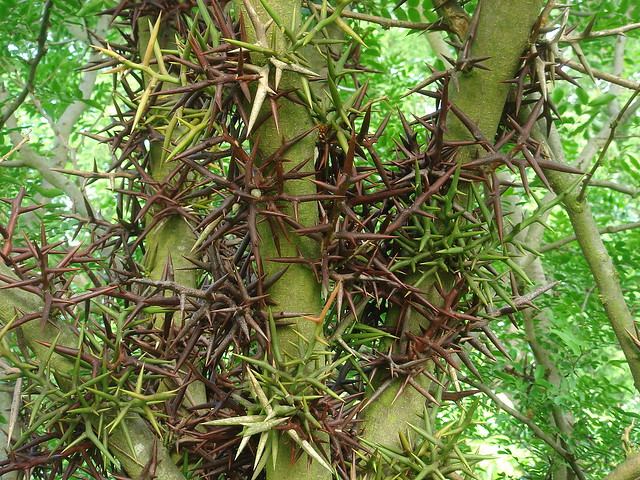
The United Nations General Assembly proclaimed March 21 as the International Day of Forests in 2012. Since then, the USDA Forest Service and its partners worldwide commemorate the day by showcasing the vast wildlife supported by forests from around the world. The theme for 2020 is ‘Forest and Biodiversity’.
Vietnam enjoy a range of climates and natural ecosystems, but the country faces challenges maintaining its biodiversity due to overuse of natural resources and conflicts with wildlife. The Green Fence Restoration Project, a Forest Service project in partnership with the Quang Nam Provincial Department of Agriculture and Forest Protection Department, aims to address these issues in the Quang Nam Elephant Reserve.
Currently, elephants leave the reserve to search for adequate food sources and encroach on local gardens. As a result, the elephants damage agricultural fields and threaten their own safety as well as the lives of community members.

To address this conflict, the Green Fence Restoration Project is building a natural barrier by planting dense rows of native Gleditsia sinensis, known locally as Bo Ket or honey locust, a hearty tree with a fast growth rate of 24 inches per year. Bo Ket is often characterized by its sharp, strong thorns covering its trunk and branches, which can grow up to one-foot in length and create an imposing obstacle.
The Green Fence will, according to reserve Director Ngo Van Tuan, “be critical for both the elephants’ and peoples’ safety.” Once the fence has grown, capacity of local law enforcement will be strengthened as the fence will “protect other wild animals from poachers and decrease deforestation.”
In 2019, the Forest Service organized a workshop for stakeholders focused on the habits, habitat, and other developmental factors of elephants in the reserve, including identifying native fruit trees to plant for future food sources. Along with providing a green barrier, workshop participants discussed that Bo Ket leaves can be harvested for use in non-timber forest products, such as traditional medicines and shampoo. This entrepreneurial, income-generating co-benefit improves livelihoods while also protecting wildlife.
To date, over 1.5 miles of Bo Ket have been planted and are being monitored by the Quan Nam Forest Protection Department. In collaboration with the Forest Service, Vietnam is protecting its biodiversity and preparing its people for a more resilient future.

